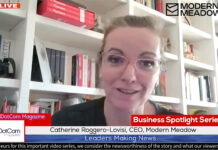Market segmentation is a crucial aspect of marketing strategy that involves dividing a market into distinct groups of consumers based on their characteristics, needs, and behaviors. By identifying these segments, businesses can tailor their marketing efforts to specific groups of customers who are more likely to be interested in their products or services. This approach allows companies to create targeted marketing campaigns that resonate with their target audience, increasing the effectiveness of their marketing efforts and ultimately driving sales and revenue.
One of the key benefits of market segmentation is its ability to help businesses identify and cater to the needs of specific customer groups. For example, a company that manufactures outdoor gear may segment its market into three groups: hikers, campers, and adventure seekers. By understanding the unique characteristics and needs of each group, the company can develop targeted marketing campaigns that speak directly to each group’s interests and concerns. For instance, a campaign targeting hikers might focus on the durability and reliability of the gear, while a campaign targeting campers might emphasize the comfort and convenience of the products.
Another advantage of market segmentation is its ability to help businesses allocate their resources more effectively. By identifying the most promising segments of the market, businesses can focus their marketing efforts on the areas that are most likely to generate revenue. This approach allows companies to optimize their marketing budget and reduce waste by avoiding unnecessary spending on segments that are not profitable.
In addition to its practical benefits, market segmentation also has a significant impact on a company’s brand identity and reputation. By speaking directly to specific customer groups, businesses can build strong relationships with their target audience and establish a reputation for understanding their needs and concerns. This approach can lead to increased customer loyalty and retention, as well as positive word-of-mouth marketing.
However, market segmentation is not without its challenges. One of the biggest hurdles is identifying the most relevant characteristics to use for segmentation. For example, a company may choose to segment its market based on demographics, such as age or income level, but this may not be the most effective approach if other factors are more strongly correlated with purchasing behavior. Businesses must carefully consider the characteristics they use for segmentation and ensure that they are relevant and meaningful.
Another challenge is ensuring that the segments are mutually exclusive and collectively exhaustive. If segments overlap or fail to account for all potential customers, businesses may struggle to create effective marketing campaigns or allocate their resources efficiently.
Despite these challenges, market segmentation remains a powerful tool for businesses looking to drive growth and profitability. By identifying and catering to specific customer groups, companies can create targeted marketing campaigns that resonate with their target audience and drive sales. As the market continues to evolve and become increasingly competitive, businesses that are able to effectively segment their market will be well-positioned to succeed.
One of the most significant benefits of market segmentation is its ability to help businesses stay ahead of the competition. By identifying and catering to specific customer groups, companies can differentiate themselves from competitors and establish a unique brand identity. This approach can be particularly valuable in crowded markets where products or services are increasingly similar, making it difficult for consumers to distinguish between brands.
Another advantage of market segmentation is its ability to help businesses build strong relationships with their target audience. By understanding the needs and concerns of specific customer groups, companies can create marketing campaigns that speak directly to those needs, building trust and loyalty with their target audience. This approach can lead to increased customer retention rates, as well as positive word-of-mouth marketing.
In addition to its practical benefits, market segmentation also has a significant impact on a company’s brand identity and reputation. By speaking directly to specific customer groups, businesses can establish a reputation for understanding their needs and concerns, which can lead to increased brand awareness and recognition. This approach can also help businesses build strong relationships with their target audience, fostering a sense of loyalty and commitment.
However, market segmentation is not without its challenges. One of the biggest hurdles is identifying the most relevant characteristics to use for segmentation. For example, a company may choose to segment its market based on demographics, such as age or income level, but this may not be the most effective approach if other factors are more strongly correlated with purchasing behavior. Businesses must carefully consider the characteristics they use for segmentation and ensure that they are relevant and meaningful.
Another challenge is ensuring that the segments are mutually exclusive and collectively exhaustive. If segments overlap or fail to account for all potential customers, businesses may struggle to create effective marketing campaigns or allocate their resources efficiently.
Despite these challenges, market segmentation remains a powerful tool for businesses looking to drive growth and profitability. By identifying and catering to specific customer groups, companies can create targeted marketing campaigns that resonate with their target audience and drive sales. As the market continues to evolve and become increasingly competitive, businesses that are able to effectively segment their market will be well-positioned to succeed.
In addition, market segmentation can also be used to identify opportunities for new product development or expansion into new markets. By identifying gaps in the market or underserved customer groups, businesses can develop new products or services that meet the needs of those customers, increasing revenue and driving growth.
Moreover, market segmentation can also be used to identify opportunities for partnerships or collaborations with other businesses. By identifying complementary businesses or industries, companies can form partnerships that increase their reach and impact, while also driving growth and profitability.
In conclusion, market segmentation is a critical component of any successful marketing strategy. By identifying and catering to specific customer groups, businesses can create targeted marketing campaigns that resonate with their target audience and drive sales. Whether you’re looking to increase brand awareness, drive conversions, or build customer loyalty, market segmentation is an essential tool for any business looking to stay ahead of the competition.

















